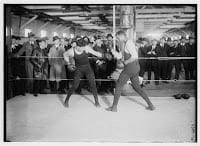
Eve is a stubborn girl. Has been from the moment she was conceived, I’m certain. And yet, she is loathsome of conflict and confrontation. As a toddler, she didn’t like to be touched or hugged by those other two-year-olds who long for physical contact. You know – the ones who hug every other kid they see? Eve hated that and would often see them coming a mile away and make her way to me as fast as her chubby, drunken little legs could carry her to hide behind my legs in fear. She had one friend in particular – her dearest, most cherished friend – who was very physical. And from time to time, as kids of that age are prone to, they would both covet the same toy. Miss Flower would see Eve playing with something she wanted and head on over. Eve, anticipating the conflict, would close her eyes, stretch her arm out in Miss Flower’s direction and turn her head away in mute acceptance. You want what I’ve got and it’s just not worth it to me to fight for it. Here, take it.
Tag Archive for: parenting

It’s the same reason I chose not to spank my kids. Fear is a powerful motivator, yes. But the only thing I’ve ever seen it motivate anyone to do is hide. Hide their intentions. Hide their actions. Hide their plans. And in my house, growing up, spanking was used as a tool for control because it inspired fear. “Do you want a spanking?” Heck, no! So we learned to lie. We learned to behave a little better, too, but it certainly didn’t teach us right from wrong. We learned avoidance.

At Eve’s school, they have Culmination ceremonies instead of mid-terms or finals. The purpose of these gatherings is to demonstrate their proficiency with the material they have been studying to their peers, teachers, and families. The school very much has a “stand and deliver” philosophy that encourages the girls to truly achieve mastery of each subject and understand it in a way that they can then teach it. The point is to ensure that they aren’t simply cramming their heads full of facts that will promptly be forgotten once they lay their pencils down.
I don’t love one of my girls more than the other. But I do treat them differently. I wish it weren’t so, but I have to say that I am not sure it is unusual or wrong. Since the first day Eve opened the door a crack to let her personality out I saw myself. When she was two and we battled over naps or bedtime or dinnertime, the crumpling of her eyebrows, the concrete set of her intentions – that’s me. The absolute need to be Right and Win, my particular Kari cocktail running through her veins. Over the years I have worked to remind myself that these traits will serve her well in her life. They will allow her to stand her ground even when she is feeling shamed or alone in her convictions. In our daily interactions, they often lead to unpleasant stand-offs between the two of us and I am left desperately searching the recesses of my brain for ways to temper some of Eve’s most problematic qualities. As I see them.
Which leads me to the knowledge that what I consider to be her most difficult personality traits are the things I hate most about myself. I cringe in shame as I remember times when I rushed, face first into an argument with someone else, convinced I had The Answer and determined to prove the other person wrong only to discover that there were things I didn’t know. Possibilities I hadn’t considered. Or, worse yet, maybe I was “Right,” but in my quest to render that fact in indelible ink, I trampled someone else’s feelings or disregarded their self-worth. I see Eve wearing a path in that meadow, back and forth, more often than not between her bedroom and Lola’s.
Yesterday as I sat on the back porch with my book, soaking up the sunshine, Lola quietly made her way to my side and sat down, forearms crossed over her eyes in a familiar pose of misery. I put my book down and turned to her as she parted her elbows to give me a glimpse of wet, full eyes. She and Eve had fought in front of Eve’s friend and Lola, embarrassed, shoved her and stormed out of the room. Eve followed, some angry words were exchanged, and Eve slapped Lola on the arm. I don’t know how hard she hit her or what they said to each other and, frankly, as soon as I heard that Eve hit her little sister, I stopped listening. I knew I couldn’t punish her in front of her friend and I had the presence of mind to know that any consequence I came up with needed to not come from anger. And I was angry. Really angry.
The depth and breadth of my anger was out of proportion to the incident. I realized that. There was a heaviness in my lower gut that led all the way up to the set of my jaw. I was furious with Eve. Despite what went before, how could she hit her sister! Would I be this angry if she had hit someone else? Nah, that’s not even a question. She would never hit anyone else but her little sister. That realization made me even angrier. I sat on the deck steps, my arms around Lola as her tears dotted my shirt, and fumed.
An hour later, standing at the kitchen counter chopping zucchini for dinner, it hit me. I was angry with Eva because, as the oldest sister, she is supposed to protect Lola, not hurt her. Wait. That was my life. My childhood.A door opened. The thoughts came swirling out like smoke rising from a campfire – as a kid, my siblings and I stuck together so that none of us would get hurt. And even when we did get hurt, we didn’t go it alone. We had each other. We stuck up for each other and looked out for each other and took care of each other. It kills me to see my girls fight. The thoughts bumping up against the ceiling of that hatred for their arguments tell me that, someday, they will be all each other has. Their sibling bond is stronger than anything. Through breakups and fights with close friends and disappointments they are too embarrassed to share with anyone else, they will have each other and they need to protect that bond at all costs. And Eve, as the oldest sister, is charged with being the gatekeeper. The key holder.
Or is that me? When I see so many similarities between us, I wonder if I too often mistake her for a miniature me. Despite the fact that her childhood is not mine, her life is not mine, I think I may be, in some way, reliving my childhood vicariously through her. All of the times I mentally assaulted myself for not doing enough to protect my baby sister, Eve could fix by taking care of her sister better than I took care of mine. And here was the source, the wellspring of my anger. I was upset because I would never have done anything to hurt my little sister. I had given myself the job of protecting her and couldn’t imagine doing anything to make her life more difficult or challenging than it was already.
But Eve is not me. And her childhood is not mine. And I have no right to expect her to fix the mistakes I made in my life by doing them over better. There is some Bubba in this gorgeous girl, too, and I need to honor that. But more than anything, I need to honor the Eva in Eva and allow her the freedom to explore who she wants to be outside of the boundaries I might think of for her.

Lola decided to play lacrosse this Spring instead of softball. She has a good friend who wanted to play and there is much more movement and action in lacrosse – simply more her style. Practices are twice a week for an hour and a half and they play two games every Saturday. It’s definitely a commitment. Especially in the Pacific NW in a La Nina year. They’ve been at it since February and I think I can count on the fingers of one hand (okay, one practice) the times it has been sunny for practice. After the first week, I took to bringing an old paper bag with me when I picked her up so she could put her muddy cleats in the bag before getting into my car. By last week, I was putting a beach towel down in her seat so that her mud-splattered backside wouldn’t ruin the upholstery. And when I say “backside” I don’t mean bottom. I mean that it looks like she stood facing a wall while someone took a paintbrush dipped in mud and flung it at her body, splatter-paint-style.
She is in Heaven.
In hail, strong winds, pouring rain and, yes, even snowfall, her solid 4’3″ frame hurtles across the field, spraying wet clumps of grass behind her as she chases the ball. Without fail, halfway through practice she slows down slightly to unzip her sweatshirt, peel it off, and fling it to the sidelines because she’s sweating from the effort. A grin adorns her face for each and every one of the 90 minutes she is on that field.
Last week as I sat in the car with the heater warming my toes and my heated seat on to its full potential, I wondered whether the coaches would call practice off. The baseball and softball players had long since gone home and the black clouds had that particular electricity to them that warned of a thunderstorm. I half-wished they would call it off so I could get home and start dinner early. But in that same moment, another thought pushed that one away. The boys weren’t going home. Their lacrosse practice was still on – I could see them in the farthest field, crashing their helmets and shoulder pads into each other with abandon, the way boys in middle school do because they know they’re too young and strong to get hurt. Yes, it was wet. Yes, it was cold. But these girls weren’t in danger of suffering anything they couldn’t handle. Of the four teams of girls, only one has a female coach, and none of the coaches, regardless of gender, was about to call off practice. Whatever their reasons, I decided I didn’t care. Knowing that Lola was out there having the time of her life and receiving the message that she was strong and capable enough to practice in inclement weather was terrific.
Eve is playing basketball with her classmates this season as well. She is not much of a ‘team-sport’ kid, but when her school fielded a 5th grade team and she realized she could play with girls she knows who are her own age, she got excited. This age brings with it self-criticism and a shyness borne of comparison like no other. Among her peers is one girl who is smaller in size than Eve, several who are slightly taller or bigger, and two who could pass for 7th graders. Two have played basketball before, but the rest of them are newbies. The coach treats them all the same. She mixes up the scrimmage teams, runs drills where she stops each of them at some time to make a particular correction or explain something further, and plays with them. At the beginning of practice, held in a local community center that is usually full of older boys playing the rough, NBA-style ball, she makes sure to shoo everyone out of the gym and shut the doors before beginning practice. She gets it. But while she makes that concession for them, she is tough with them in other ways. They are not allowed to sit down for the entire practice. They can rest and take water breaks as necessary, but everyone on the team works their butt off. She makes sure they know what their bodies are capable of and shows them time and time again. Eve is so proud of her ability to do things she never thought she could. She convinced herself long ago that she is more a “creative-type” than an athlete and, while she enjoys messing around on her bike and shooting baskets in the backyard, she was fairly resigned to the fact that playing a sport on a team wasn’t for her. She’s discovering just how wrong she was about that.
In very different ways, my girls are both learning that pushing themselves in a safe environment is a powerful feeling. I am terribly grateful for coaches and organizations that provide them the opportunity to spread their wings within these comfortable boundaries. It makes me that much more committed to ensuring that girls everywhere find places like these in their lives in order to empower themselves and better understand their own abilities.
This whole lifelong learning thing is coming at me in waves! Unfortunately for me, I often plow through my days busying my brain with so many things that the Universe has to shake me or poke me or smack me upside the head to get me to pay attention from time to time. And with certain issues I prefer to avoid altogether, it is necessary to poke me repeatedly. Money is one of those issues. I am lucky enough to have what I need so that we aren’t living paycheck-to-paycheck like most of the world is and that has enabled me to continue to hide behind the black curtain, blithely continuing to ignore the cavalier way I treat financial issues.


This news just in! Well, it isn’t exactly news and it’s not scientific. But each and every one of the following mini-epiphanies I’ve come to this week started with my own inability to fit into any of my favorite pairs of pants comfortably. It seems I’ve taken too many liberties with the carpool snacks I provide for the girls and the stash of Theo Chocolate I have in the cupboard. Add to that the crazy schedule I’ve had over the past few months that makes it difficult to get to yoga regularly, and more often than not in the past week I have found myself almost resorting to lying on my back to zip my jeans up. Not acceptable.
- The things that my girls do that make me gnash my teeth the most? It turns out that they know those things make me batsh*t crazy. But even more profound is the fact that, when I examine the issue, those are the things I most despise about myself. Hmmm. Ick. Am I trying to change them so I don’t have to see them reflecting me back to me?
- For several months at the end of last year I began wondering whether I was having early-onset Alzheimer’s disease, and that’s not a joke. Both of my grandmothers had it and it is truly frightening. I was having difficulty recalling things from my short-term memory and took to bringing a notebook with me wherever I went so that I could write down tasks I needed to remember, things I needed at the store, and writing prompts for later. Mostly I talked myself out of panicking, saying that it was normal aging, but I really was worried. Then I went off of my anti-depressants and now, four weeks off of them, my short-term memory is greatly improved. They say writers need to have some angst and while I’m doing fine off of my meds for now, I wonder if they made me a better writer or a worse one. On the meds, I didn’t begin every day wondering when the depression was going to smack me upside the head, but I had difficulty recalling simple things. Off the meds, I’m a little more nervous about impending doom, but I can at least keep track of what I wanted to write about.
- Success (mine, anyway) can only be had one moment at a time. All I have is this, right now. I can beat myself up for the handful of dark chocolate raisins I ate last night without being mindful at all, and use that as an excuse to eat another handful or think poorly of myself. I can worry that there are more in a bag in the pantry and I will surely want them again later. Or I can sit in this moment right now and acknowledge that I don’t want them right now. This moment, right here, where I am doing what feels good to me (writing, listening to the clothes tumble around in the dryer, furry dog on my bare feet) is a success.

Everyone wants a village. In fact, I’m convinced that it takes a village to raise us all – not just our children. When I tell people about the neighborhood I live in, (six houses, fifteen kids, eight dogs, three miles from downtown, neighbors who are willing to wait for your kids at the bus stop if you’re running late…) they turn all shades of envious. We aren’t nosy or in each other’s faces, but we do know that if someone is hurt or sick or in need of a good book to read, there’s always someone willing to share. When Bubba was in the hospital, they brought meals, mowed our 1.5 acre lawn and offered to watch the girls. We carpool from time to time and have communal garage sales and care for each others’ pets when someone is out of town. It rocks. And when Bubba and I discuss moving from time to time, I am struck with worry that I might not find this again.

Sex Ed. Ooh, the phrase strikes fear in the hearts of so many for such a variety of reasons. I’ll admit that, as the mother of two daughters, I was a little afraid to broach the subject, too, and with Eve being the first of my girls to get any sort of formal sexual education at school, I was curious and a nervous. But, three weeks into the six week program, I have to say that I don’t even know why it is called “Sex Ed.”
Let me preface this by saying that my own personal experiences with Sex Ed are basically two: mine and Eve’s. I have no idea what the curriculum is like at most public schools these days. I only know what I got (an awkward, red-faced teacher whose attempt to educate us was limited to a thirty minute film coupled with two worksheets that basically described male and female reproductive anatomy), and what Eve is getting and the two are not even in the same universe.
Of course, any faithful reader of my blog has read my fawning words of praise for Eve’s school here and here, so I suppose none of the following should come as a surprise. But, that being said, I honestly think that even if half of the content given to Eve and her fellow students is presented in public schools today, we ought to rename the class itself and maybe douse that fear strike with a big ol’ bucket of water.
While the staff at Eve’s school do tackle those big scary concepts of anatomy and development and *gasp* sex, there is so much more involved. Like discussing how we make decisions and why. Like understanding that, in the heat of the moment, we often can’t rely on our brains to give us accurate enough information so it’s important to build a moral framework that will carry us through. Like learning to accept that our bodies and minds are changing and making friends and staying true to ourselves during those shifts is really, really hard. They ask the girls to think about whether the pediatrician they’ve seen since the day they were born is someone who they can comfortably talk to about their period and their body image. If not, they want the girls to explore whether they feel like they can talk to their parents or guardians about that and find someone who they can trust and talk to. They talk about peer pressure and nutrition and how they can take care of their bodies and cherish them, no matter the package they come in.
The lessons are also broken down into developmentally appropriate classes so that the eighth graders are getting slightly more sophisticated information than the 5th graders that makes sense to their lives and acknowledges the fact that they are moving on to high school where relationships are vastly different. Last week, the sixth graders wanted to talk about their periods, and the teacher divided the class into groups of three or four and asked the girls to put on skits about having their periods to demonstrate what they already knew, or thought they knew. One group of girls designed a show around a girl who lives with her dad and was mortified to have him take her to the local drugstore to buy tampons. The third member of their group was the nearly-deaf cashier who insisted on hollering, “TAMPONS? I THINK TAMPONS ARE ON AISLE THREE!” in the middle of the store. Another group showcased a young girl who desperately wanted to cancel a sleepover she was going to because she was having her period and was embarrassed to think about throwing away soiled maxi pads in someone else’s bathroom or leaking blood onto her pajamas unknowingly. Once she found the courage to confide in her girlfriend, it turns out they were both cycling right then and everyone had a good, hearty laugh.
These girls astound me with their cleverness and honesty. And the staff bring tears to my eyes with their willingness to listen to the concerns these young ladies have. There is an anonymous question box that has served to enlighten everyone simply because nobody has to raise their hand and ask the embarrassing question everyone wants the answer to.
More than anything, though, I am pleased that “Sex Ed” is treated like just another subject at Eve’s school. These girls are given information that they need just as much as long division or social studies and encouraged to participate by asking questions and exploring ideas outside of school. Eve asked me the other day, as I was driving her and five of her classmates in the carpool, about my first period. I told her honestly: I was in seventh grade and went to the bathroom during the break between Algebra and PE to discover a lot of blood in my underwear. Nobody had ever talked to me about menstruation, so the blood that showed up after a morning of back cramps told me one of two things – either I had some horrible childhood cancer, or God was smiting me for making doe-eyes at Eric during math class instead of listening to the teacher. Either way, I was going to die, but first I had to stuff half a roll of toilet paper into my pants before heading off to PE. The girls were mortified and they all vowed to bring pads to stash in their lockers the next day in case they started their periods at school.
When I think about the things these girls are learning that have nothing (or at least, very little) to do with actually having sex with anyone, it makes me sad to know that there are families in my neighborhood who purposely keep their own children home on the days Sex Ed is scheduled. I am disheartened that the curriculum is even saddled with that particular name, given that these are tremendously important life skills that are being offered, but that the politicization of sex has frightened so many into thinking that we are, instead, encouraging our children to think about sexual intercourse by teaching them about their bodies. What I see them learning is how to understand and care for their bodies, how to ask questions that are important to them (even if they prompt blushing), and the notion that adults in their lives trust them enough to give them this information that is vital to their well-being.
![]()
Thanks for visiting my site. I’m driven by the exploration of human connection and how we can better reconnect to ourselves, our families, and our communities. Aside from my books, I hope you’ll check out my blog, and some of my other writing to find more perspectives and tools.


